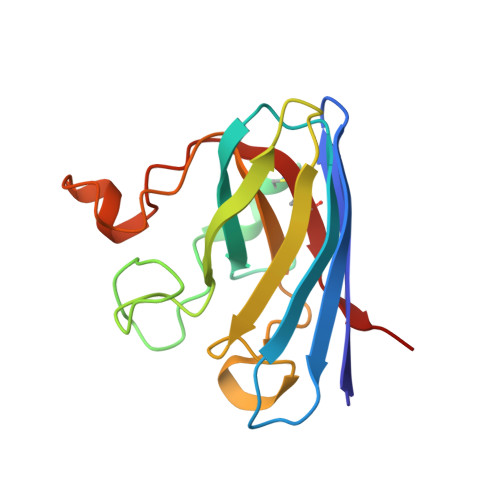Ebselen analogues delay disease onset and its course in fALS by on-target SOD-1 engagement.
Watanabe, S., Amporndanai, K., Awais, R., Latham, C., Awais, M., O'Neill, P.M., Yamanaka, K., Hasnain, S.S.(2024) Sci Rep 14: 12118-12118
- PubMed: 38802492
- DOI: https://doi.org/10.1038/s41598-024-62903-5
- Primary Citation of Related Structures:
7T8E, 7T8F, 7T8G, 7T8H - PubMed Abstract:
Amyotrophic lateral sclerosis (ALS) selectively affects motor neurons. SOD1 is the first causative gene to be identified for ALS and accounts for at least 20% of the familial (fALS) and up to 4% of sporadic (sALS) cases globally with some geographical variability. The destabilisation of the SOD1 dimer is a key driving force in fALS and sALS. Protein aggregation resulting from the destabilised SOD1 is arrested by the clinical drug ebselen and its analogues (MR6-8-2 and MR6-26-2) by redeeming the stability of the SOD1 dimer. The in vitro target engagement of these compounds is demonstrated using the bimolecular fluorescence complementation assay with protein-ligand binding directly visualised by co-crystallography in G93A SOD1. MR6-26-2 offers neuroprotection slowing disease onset of SOD1 G93A mice by approximately 15 days. It also protected neuromuscular junction from muscle denervation in SOD1 G93A mice clearly indicating functional improvement.
Organizational Affiliation:
Department of Neuroscience and Pathobiology, Research Institute of Environmental Medicine, Nagoya University, Furo-Cho, Chikusa-Ku, Nagoya, 464-8601, Japan.

















